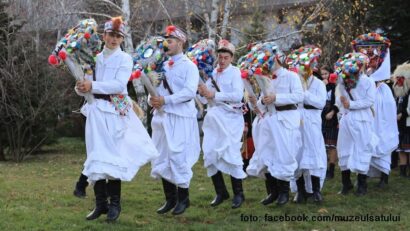Together for Rural Health
A project that brings monthly health-caravans in disadvantaged rural areas.

România Internațional, 18.08.2013, 13:00
The Association of Medical Students in Bucharest in partnership with the Physicians’ College and the “Carol Davila” University of Medicine and Pharmacy organize monthly health-caravans in disadvantaged rural areas. Twelve medical students, together with physicians and residents run clinical examinations, ultrasound screenings and blood tests on village dwellers. Elena Sburlan, a member of the Association and coordinator of the project called “Together for Rural Health” recollected the beginning of the adventure:
Elena Sburlan “’Together for rural health’ is a public health project, which started in April 2011. There have been 18 editions ever since and we have seen some 2 thousand 500 adult patients and one thousand children. We’ve grown constantly since then. We are now seeing some 250 patients at every edition. We used to hold the caravan once in a while, but now we manage to hold one or two editions per month, which last between 2 and 5 days. We usually go on week-ends, because this is when physicians are free, and most of the times we stay there since morning until evening, we see some 100 patients per day and we start again the next morning.”
In the beginning, the Communes’ Association in Romania would tell volunteer students which were the disadvantaged areas. Now destinations are established depending on the information they get from mayors and family physicians from villages where people do not see specialists coming very often.
Elena Sburlan: “There are family doctors who have 3-4 villages in care, they are 10 km away from the village and they manage to get there once or twice a month. It’s difficult. We contact the mayor, the one that usually makes the appointments. When we get there, we already have a list of people registered in the past 2-3 weeks and starting at 8 a.m. we ask them in for a check-up.”
First we take blood for blood tests then patients undergo the clinical checkup usually performed by students, Elena Sburlan explained.
Elena Sburlan: “We have a medical observation sheet which we observe, and in keeping with the pathology we found, patients are sent to specialist medical doctors. We have gynecologists, dermatologists, ultrasound specialists and cardiologists but we need rheumatologists. We perform heart ultrasound tests and the Babes Papanicolau test is done for free, with the support of the military hospital. The results go back to the municipality. What impressed me most was that we have already found women who have dysplastic lesions and for whom the treatment has been initiated, with the support of the local municipalities.”
As many as 50 physicians and 100 volunteers are part of the caravans. A pharmaceutical company sponsors part of the project by granting money for consumables. Elena Sburlan has told us more about the first caravan that she participated in:
Elena Sburlan “I fell in love with it. I understood what helping others means and that it’s possible to do something for others if you really want to. We cannot help other people as much as we would like, but even the little help that we provide makes a difference. I experienced first hand people’s kindness and how much a simple medical examination means to them. Some of these people haven’t seen a doctor in 10 or 20 years. Although they are aware they have some health issues, they can’t bring themselves to go to the nearest town for a checkup. I’ve seen many things that have impressed me. At the last caravan I participated in, while performing a routine ultrasound scan, I saw two tiny hands moving. The mom-to-be had no idea she was pregnant so the news came as a huge surprise for both the young woman and for us. So it’s not easy, but it’s not impossible either. It’s a rewarding activity that makes you lose all track of time. After checkup, each patient receives a medical letter and indications on how to continue investigations, if necessary. That’s all we can do, offering them a starting point and guidance to find out an exact diagnosis and get a proper treatment.”
Adelina Toma, the vice president of the Association, says that the most impressive place visited by the medical students’ caravan was the Danube Delta. It takes a 7-hour walk to get to the nearest hospital there.
Adelina Toma: “In order for the caravan to get there we had to cross part of the Danube by boat. You can imagine that concepts such as emergency or ambulance are not at all common in that area. Not to mention the case when the Danube is frozen and the locals’ access to medical services is close to zero.”
The students who organize the caravan would like to buy a good ultrasound screening machine, for breast and thyroid sonograms; and they are willing to work for that, Elena Sburlan told us:
Elena Sburlan: “At the moment we make abdominal ultrasounds but a medical check-up would be great if we could get that machine. And we are willing to work for it. We are now trying to raise money, we are sending e-mails, we are looking for sponsors. An ultrasound-screening device costs around 15 thousand Euros. Along the years we have been helped by pharmaceutical companies, by natural persons, but help was never sufficient enough for us to be able to make this wish come true.”
The two medical students told us that it’s not just one person that should make one big donation. If many people would donate a little, enough money could be raised to organize such caravans more often and to buy the device that people in disadvantaged areas need so much.






























